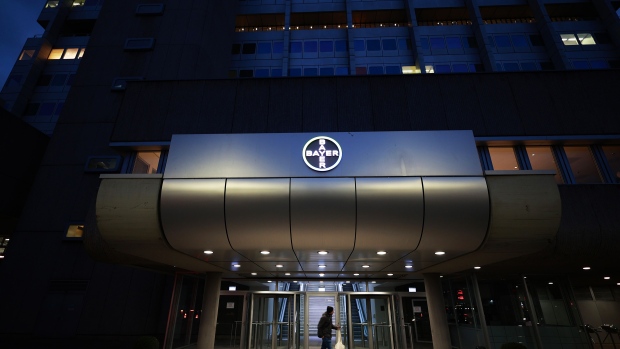Jan 5, 2024
Bayer Investor Harris Sees Potential in Breakup of German Conglomerate
, Bloomberg News

(Bloomberg) -- Bayer AG is facing renewed calls for a breakup, with a top investor urging Chief Executive Officer Bill Anderson to reshape the unwieldy German conglomerate and unlock “huge potential” from its three main units.
Bayer’s three divisions — dedicated to crop science, pharma and consumer health — are all “good businesses,” but they probably don’t belong under one roof, according to David Herro, portfolio manager at Harris Associates LP, which owns a roughly 4% stake. Anderson needs to lay out a better ownership plan by Bayer’s capital markets day in early March, Herro said.
“Do I believe that the current structure is anywhere near where it should be? Absolutely not,” Herro said in an interview Friday. “I’m sure there is a way to extract value, and large sums of it, by corporate rearranging — both on the micro and the macro.”
Harris is one of the top five investors in Bayer, which has lost more than 60% of its market value since its $63 billion takeover of herbicide and seeds maker Monsanto in 2018. Ex-Bayer CEO Werner Baumann spearheaded that deal just weeks into his own tenure.
Baumann overpaid for Monsanto and did a poor job of integrating the company, Herro said. The former CEO also should have found a better strategy early on to stanch a flood of litigation over the weedkiller Roundup, the portfolio manager said.
Roche Veteran
Harris probably would have sold its stake in Bayer by now if the company hadn’t replaced Baumann last year, Herro said. Now, he sees reason for optimism under Anderson, a Texas native who was previously head of Roche Holding AG’s pharma division and took over at Bayer in June. Since then, the new chief has pushed for cultural change within Bayer, looking to speed up decision making, cut layers of management and empower employees who are closest to customers.
Bayer declined to comment for this story.
Anderson has said he’s weighing a breakup of Bayer, a move that could undo much of the legacy of Baumann, as he looks to focus “only on what’s essential for our mission, and getting rid of everything else.” Anderson has laid out options including selling off the consumer health unit, listing it as a separate entity or spinning it off. He’s also considering separating the crop science division.
With his pharma background, Anderson has plenty of experience shepherding experimental medicines to market. He has told investors that despite a high-profile clinical trial setback in November, the company has a lot of promising early-stage therapies in the pipeline.
“Bill makes a very good point that with patience, patience, there’s a lot of good seeds in the ground,” Herro said.
‘Solid Lid’
Herro endorsed Bayer’s pitch that its crop division’s technology will be needed to feed a growing global population on the world’s shrinking acreage of arable land. Even so, he said, the company needs to find a way to put a “solid lid” on the money it’s been paying out to US plaintiffs who have sued over the safety of products like Roundup, which Bayer insists is safe.
When Bayer explored options during a simulation in the fall, it found that any divestiture of the consumer health business would likely trigger a massive tax hit potentially jeopardizing the benefits of a deal, Bloomberg reported in November.
“If there is a big tax bill, they have to think twice about it,” Herro said. “Everything is a cost and a benefit and I think we will trust them to find the route that has the least amount of leakage.”
To some extent, the Bayer situation reminds Herro of Daimler AG before it separated into Mercedes-Benz Group AG and Daimler Truck Holding AG a couple of years back. Harris has long invested in those companies, and Herro regards the two businesses today as healthier than their joint predecessor.
Before the split, there was “so much fat and so many layers and so much waste,” Herro said. “Being kind of a conglomerate, there’s so many low-hanging fruits.”
©2024 Bloomberg L.P.






